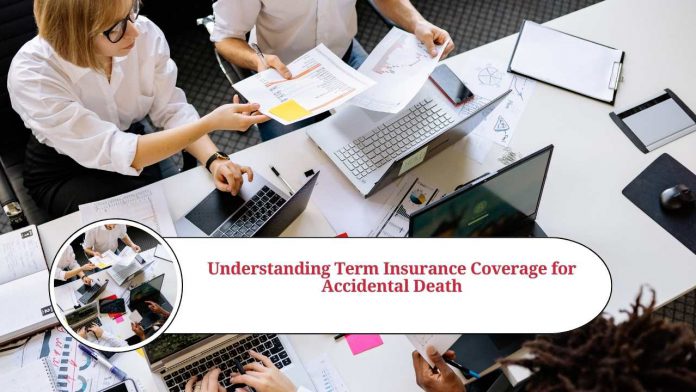Term insurance is a popular type of life insurance that provides financial protection to your loved ones in the event of your death during the policy term. While term insurance primarily covers natural causes of death, many policies also offer coverage for accidental death. This article aims to clarify the scope of coverage for accidental death under term insurance, providing you with a comprehensive understanding of this important aspect of your policy.
I. What is Accidental Death Coverage?
Accidental death coverage, also known as an accidental death benefit or accidental death rider, is an additional feature that can be added to a term insurance policy. It provides an extra sum assured in the event of the insured’s death due to an accident. This coverage is designed to offer an additional layer of financial security to the policyholder’s beneficiaries in case death occurs as a result of an unexpected accident.
II. How Does Accidental Death Coverage Work?
When the policyholder selects the accidental death coverage option, the term insurance policy becomes a comprehensive plan that covers both natural and accidental death. If the insured person dies due to an accident covered by the policy, the beneficiary will receive the regular death benefit from the base term insurance policy as well as an additional sum assured specified under the accidental death coverage.
III. What Constitutes an Accident?
The definition of an accident may vary between insurance providers, so it is crucial to carefully read the terms and conditions of your policy. Generally, an accident refers to an unforeseen and sudden event that causes bodily injury or death. Common examples of accidents covered by term insurance include car accidents, falls, drowning, and certain types of occupational accidents.
IV. Exclusions and Limitations:
Like any insurance coverage, accidental death coverage also has certain exclusions and limitations. It is important to understand these to avoid any misunderstandings. Some common exclusions may include death resulting from self-inflicted injuries, participating in hazardous activities, or engaging in illegal activities at the time of the accident. Furthermore, there may be limitations on coverage for certain age groups or specific types of accidents, so it’s crucial to review your policy’s terms and conditions.
Conclusion:
Accidental death coverage enhances the financial protection provided by a term insurance policy, ensuring that your loved ones receive additional support if your demise is due to an accident. It is important to carefully review the terms and conditions of your policy, including the definitions, exclusions, and limitations associated with accidental death coverage, to have a clear understanding of the protection offered. Consulting with an insurance professional can also provide valuable insights and help you make informed decisions regarding your term insurance policy.
Read more useful content:
Frequently Asked Questions (FAQs):
Q1: Can I purchase accidental death coverage separately from term insurance?
A1: No, accidental death coverage is typically offered as an optional rider that can be added to a term insurance policy. It cannot be purchased as a standalone insurance product.
Q2: Is accidental death coverage expensive?
A2: The cost of adding accidental death coverage to a term insurance policy may vary depending on factors such as the insured person’s age, health, and the desired coverage amount. It is advisable to consult with an insurance agent or company representative to understand the cost implications.
Q3: Do term insurance policies cover disabilities resulting from accidents?
A3: No, accidental death coverage specifically provides a death benefit in case of an accident resulting in the insured person’s death. Disabilities resulting from accidents typically fall under the purview of disability insurance or personal accident insurance.




















